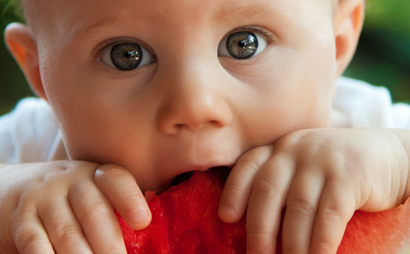
The Durian Effect or How We Are Influenced by Our Colleagues

Dr. Markus Ebner , MSc.
Organizational Psychologist/Founder of the PERMA-Lead Model
Als ich im Jahr 2005 das erste Mal in meinem Leben nach Südostasien reiste, war ich überwältigt. Die Mischung von ungewohnten Gerüchen, Geschmäckern und einer anderen Lebenshaltung ist für einen Europäer außerordentlich spannend. Besonders angetan war ich von den vielen Obst- und Gemüsesorten auf den Märkten, die ich in meinem ganzen Leben noch nie gesehen hatte.
I remember feeling overwhelmed when I travelled to Southeast Asia for the first time in 2005. The mixture of unfamiliar smells, tastes and a different way of life is extraordinarily exciting for a European. I was particularly taken with the many fruits and vegetables on display in the markets that I had never seen before. The first large market I visited was near Bangkok. As an inquisitive person by nature, I enjoyed tasting as many of these previously unknown fruits as possible, and I made the acquaintance of a fruit that originally came from Indonesia and Malaysia and is now widespread throughout Southeast Asia: the Durian. It weighs up to four kilograms, is 30 cm long and has woody spines.
So I bought a piece of Durian and tried it. The taste is hard to describe, like a mixture of apple, banana an vanilla, with a nutty flavor alongside – and with a very unusual consistency. Overall, it was not an exceptionally positive or negative experience.
A day later, upon entering a Bangkok metro station, I noticed a sign at the entrance saying that besides animals, flammable objects, large pieces of luggage and a number of other items, it was expressly forbidden to take Durian fruit onto the transit system. Each subway station throughout Bangkok displayed a prohibition sign with a crossed out Durian. I would not have realized the exact meaning of this picture had it not been for the English description underneath. My first thought was that perhaps because of its prickly skin and weight it was capable of hurting people. But that was not the reason as I later discovered.
 Past perception influences future perception
Past perception influences future perception
During my onward journey to Singapore I also found signs prohibiting the carrying of Durian on public transport prominently displayed in subway stations. At some markets where fruit was on sale, I even saw Durian prohibition signs next to the stalls. And once sensitized, I began noticing these signs in airports, on trains and even in hotel lobbies. On subsequent journeys to Southeast Asia, I came into contact with an increasing number of locals and learned that Durian is not perceived as a normal fruit. Many faces became distorted with a look of disgust when I mentioned it to them. I found that the majority of people are repulsed by the smell and taste of this fruit. The individual descriptions of Durian range from fruity, to onion-like, to decaying. This was the reason why in many public places and institutions it was forbidden to carry this fruit. The smell is evidently unbearable to many people.
It was exciting to see how my subjective perception of this initially rather insignificant fruit changed. While my first tasting had seemed rather unremarkable, I now began stopping at every market stall whenever I noticed the fruit on sale to inspect it. Didn't it smell a little like something decomposing? I found Durian jams, Durian sweets, and a variety of Durian-containing products to bring back from my travels as funny little gifts. After all, this fruit was unique.
At some point, on another trip to Asia, I stood beside a Durian market stall and suddenly smelled it. I remember thinking how unbearable the stench was and asking myself how I could ever have put it in my mouth. How could I have been so neutral to it years before? My assessment of the smell had changed significantly. However, the change had not been a conscious process, but through gaining perceptions of other people's evaluations. It was not I who had decided that I now found this fruit disgusting, but the process of unconscious influencing by evaluations of other people had actually led to a change in my perception of smell and taste. The people with whom I was in contact had shaped my assessment without it being their explicit goal.
 The effect is known to us
The effect is known to us
Most parents consciously use this effect when they want to make it clear to their small children what they should not put in their mouths. Often the child is shown that something is inedible with a distorted facial expression and matching sounds. And it is exciting to observe how children imitate these facial expressions and later even show adults the appropriate facial expression on their own when they pick up the object. This is where social learning happened. And this social learning happens consciously and unconsciously wherever people come together. For example, the assessment of which behaviors are perceived as positive or negative is significantly influenced by the group to which one belongs. Which clothes are perceived as pleasant (the spectrum ranges from nudism to full body coverage) is evidently not related to differences in climate, but rather to cultural influences. People with whom we surround ourselves voluntarily, or who become part of our lives through the context of our work, thus influence us in most cases far more than all books, magazines or other purely intellectual contents. The values and standards of people close to us become part of our own value system over time.
 The Durian effect in teams
The Durian effect in teams
In a team where mutual support is a high priority, new employees are more likely to develop this standard than in a team where competitive behaviour is a priority. This is not necessarily because they have actively decided to do so, but because the team culture influences their own behaviour. A circle of friends in which sport has a low priority and passive entertainment has a high priority will most likely reduce or encourage corresponding tendencies among its members. Organizational cultures also have a significant influence on their workforce. Whether there is a distanced or friendly relationship between colleagues, whether a passive or self-determined, active behaviour is shown in further training courses, to what extent one gives honest feedback to one's manager or which contact with customers is experienced as normal, is decisively influenced by the values and standards of this organisation. In other words, by the people who make up this organisation. People who are part of our own lives do not necessarily describe us as an empty page, but they raise or lower our own standards and values. They are therefore a relevant contribution to whether we unfold our positive potential or give our less favourable sides the greatest space.
People in teams thus influence each other, that's for sure. In an experiment at the University of Florida, it turned out that constant outrageous behaviour towards a team member is very likely to lead to this team member becoming more outrageous towards other colleagues. So the behaviour of individual team members is like a virus spreading. Both positively and negatively. Thus, managers influence the team culture decisively by what behaviour they tolerate or emphasize positively. This also has a direct effect on performance. Studies in teams with medical tasks have shown that accepted rude behaviour of the team members reduces performance by 12 percent.
 Positive relationships have measurable effects
Positive relationships have measurable effects
Studies by the late scientist Petersons clearly and impressively show the importance of positive social relationships for people - in every context of life. Much research on the subject is now available and shows that positive relationships have many positive consequences, such as faster recovery from illness, higher overall life satisfaction, lower stress levels and even a longer life. The school climate (significantly influenced by the perceived quality of interpersonal relationships) has a measurable impact on students' performance. Relationship quality also has an influence on unfavourable physical developments: an American study with around 3,000 participants found that people who experience good social support from their family in adulthood are less likely to subsequently suffer from obesity.
Über den/die Autor*in
Dr. Markus Ebner, MSc.
Organizational Psychologist/Founder of the PERMA-Lead Model
He teaches leadership at several universities and colleges, has written numerous books and publications in this field, and has additional training in coaching, supervision, crisis intervention, social pedagogy, and organizational and team development. In addition to his more than 20 years of work as a trainer, coach and consultant, he is the founder of the PERMA Lead Model and, as one of the renowned European experts on Positive Leadership, is on the Board of Directors of the Austrian Umbrella Association for Positive Psychology. In 2021, he was awarded the Exemplary Research to Practice Award by the World Positive Psychology Association (IPPA) for his work.
